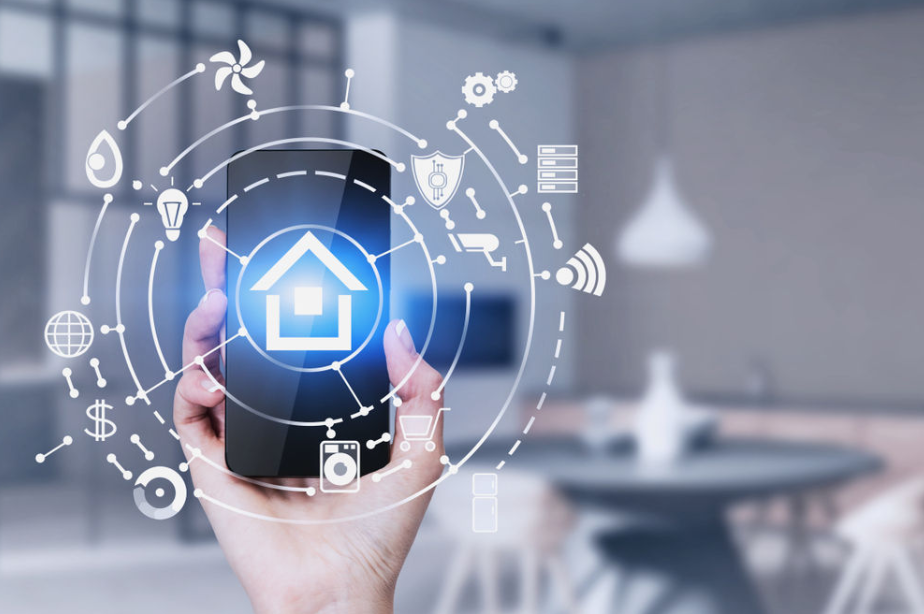How a Smart Home Automation System Can Improve Home Security

In today’s fast-paced world, home security has become a top priority for many homeowners. Traditional security methods like locks and alarm systems still play an important role, but technology has introduced more advanced ways to protect your home. One of the most effective tools available is a Smart Home Automation System. This system combines convenience, control, and real-time monitoring, making your home safer and giving you peace of mind.
Understanding a Smart Home Automation System
A Smart Home Automation System is a technology setup that allows homeowners to control various aspects of their home through connected devices. These devices can include cameras, door locks, motion sensors, and alarms, all linked to a central control hub. Most systems can be managed through a smartphone app, giving users the ability to monitor and control their home security from anywhere. This seamless connectivity makes it easier to respond to potential threats and maintain a secure environment.
Real-Time Monitoring for Enhanced Security
One of the biggest advantages of a Smart Home Automation System is real-time monitoring. Unlike traditional security systems that only alert you after an incident occurs, smart systems provide live updates and notifications. For example, if a motion sensor detects unusual activity or a door is opened unexpectedly, your system can immediately send an alert to your phone. This allows you to act quickly, whether that means calling the authorities or remotely checking security cameras to assess the situation.
Smart Locks and Access Control
A Smart Home Automation System also improves security through advanced access control. Smart locks allow homeowners to lock or unlock doors remotely, assign temporary access codes, and monitor who enters and exits the home. This feature is especially useful for families, service providers, or guests, as it ensures that only authorized individuals can access your property. Additionally, smart locks can automatically engage when you leave home, reducing the risk of leaving doors unlocked and vulnerable.
See also: The Future of Filmmaking: How AI and Technology Are Revolutionizing Movies
Integration with Security Cameras
Security cameras are a critical component of a Smart Home Automation System. These cameras not only record footage but also provide live streaming directly to your smartphone or tablet. Some smart cameras come with motion detection, facial recognition, and night vision capabilities, further enhancing your home’s security. Integration with the automation system allows you to trigger alerts, record suspicious activity, and even communicate through two-way audio, providing an extra layer of protection.
Automation for Preventive Measures
A Smart Home Automation System can also take preventive actions to deter intruders. For instance, you can schedule lights to turn on and off at specific times, giving the impression that someone is home even when you are away. Smart blinds or curtains can be programmed to close automatically at night, adding privacy and security. These automated features not only make your home less attractive to potential burglars but also allow you to maintain control without constant manual intervention.
Emergency Response Integration
Another significant benefit of a Smart Home Automation System is its ability to integrate with emergency services. Many smart systems can connect directly with local police or fire departments. In the event of a break-in, fire, or other emergency, the system can automatically notify the appropriate authorities, ensuring a rapid response. This integration reduces the response time compared to traditional alarm systems and provides added reassurance to homeowners.
Peace of Mind and Convenience
Beyond physical security, a Smart Home Automation System provides peace of mind. Knowing that your home is monitored and that you can manage it remotely reduces stress and allows you to focus on daily life. Whether you are at work, on vacation, or simply in another room, the ability to check cameras, lock doors, or receive alerts offers a sense of control and comfort that traditional security systems cannot match.
Conclusion
A Smart Home Automation System is more than just a convenience; it is a crucial tool for modern home security. By combining real-time monitoring, smart locks, security cameras, and automation features, it offers comprehensive protection for homeowners. With the ability to act quickly, deter intruders, and maintain control from anywhere, a smart system enhances safety while providing peace of mind. For anyone looking to improve home security, investing in a Smart Home Automation System is a step toward a safer, more secure home environment.



